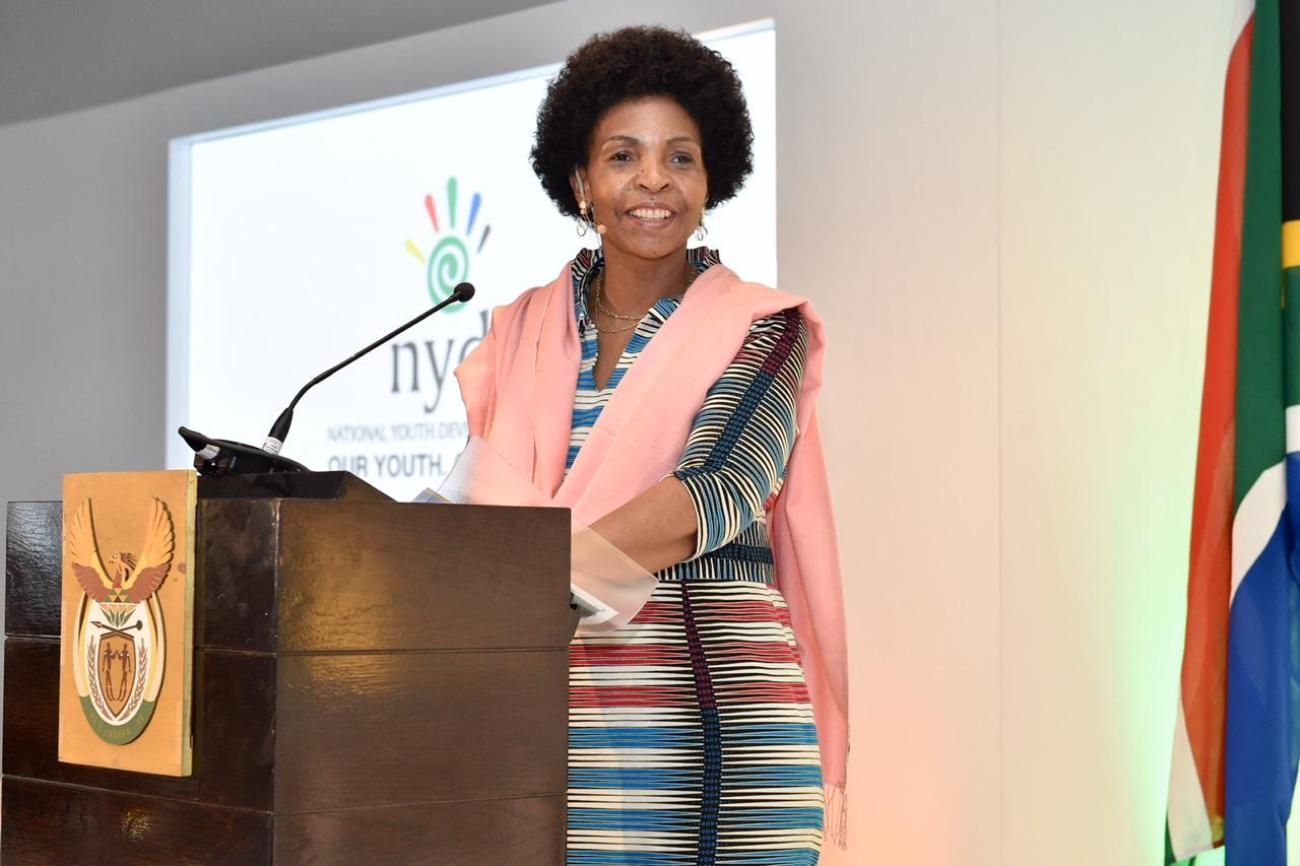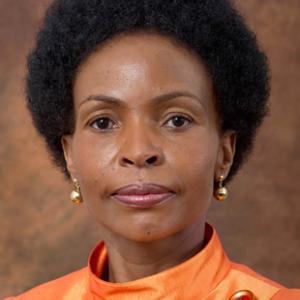Op-Ed by Minister Maite Nkoana-Mashabane "From New York City to Ladysmith: Fostering Global Solidarity in responding to the local effects of Climate Change"

To realize the potential of gender responsive approaches to climate change, we must envision the role of women and girls beyond their participation in decision.
It has been an honour to lead the South African delegation to the 66th Session of the Commission on the Status of Women (CSW66) at the United Nations Headquarters (UN) in New York. This year is also important given that South Africa is the Chair of the Bureau of the CSW.
South Africa is chairing the CSW at the critical time as the world is grappling with the recovery process amidst the ongoing COVID-19 pandemic. The recovery process provides the international community with an opportunity to re-enforce the blueprint to inclusive and sustainable development. In this regard, we must continue to implement the mandate paved for us 27 years ago at the Beijing Declaration and Platform for Action by using the power and influence of CSW as a UN organ to accelerate and advance gender equality.
CSW66 was convened under the theme “Achieving gender equality and the empowerment of all women and girls in the context of climate change, environmental and disaster risk reduction policies and programmes”. The South African position I delivered and unpacked during the plenary session was informed by inputs from strategic government departments of our government. These included the Department of Human Settlements; Department of Forestry, Fisheries and the Environment as well as Department of Agriculture, Land Reform and Rural Development. Furthermore, other contributions were made by captains of industry and most importantly, the women of South Africa.
As the lead Department responsible for issues of gender and women empowerment, the Department of Women, Youth and Persons with Disabilities, conducted a series of virtual national consultations and hybrid provincial consultations in Limpopo and Gauteng in preparation for the CSW session. Accordingly, we carried to New York a South African position that reflects the collective aspirations of women in accelerating gender equality and building a sustainable society in the context of climate change. The country’s position also highlights the barriers that hinder women and girls’ resilience in the face of climate change, environmental and disaster risk reduction policies and programmes.
An integral mandate of the South African delegation is to ensure that key priority areas of the country are presented to a global audience to strengthen diplomatic ties and build solidarity to address critical issues at a continental, regional and national level.
The effects of South Africa’s climate change patterns are mostly felt by the country’s agricultural sector. South Africa relies on agriculture to stimulate economic activity especially by creating employment opportunities for women and girls. Women contribute 60% to 80% of the agricultural labour force in South Africa. Despite their role in the sector, women remain excluded from key economic opportunities and processes in agriculture which leaves them vulnerable to the impacts of climate change.
The lack of access to land ownership, financial capital, technical inputs and agricultural technologies hinders their ability to make even more meaningful contributions, implement and lead in environmental and disaster risk reduction policies and programmes that are gender responsive. In fact, what is evident, even during the General Assembly, is that the challenges facing women and girls in agriculture across developing countries are similar to the challenges raised by the women farmers of Polokwane during the CSW consultation held in Limpopo, in South Africa.
We must bridge the gap between global decisions taken and their ability to influence local realities. CSW is the platform to continue to do this.
South Africa has made great progress in committing to international and regional treaties aimed at strengthening responses to climate change including the Paris Agreement of the United Nations Framework Convention on Climate Change (UNFCCC) and 2012 Rio+20 Agreement. However, developed countries must take the lead in mitigating the impact of climate change including fulfilling their climate finance obligations and commitments inclusive of programmes for mitigation, adaptation, technology transfer and financing. Global collaboration, solidarity and accountability must translate into the improved, equitable and impactful response strategies to climate change in communities.
Gender responsive budgeting should underpin all financing of climate change policies that would capacitate women-led interventions.
South Africa has amended its Disaster Management Act, 57 of 2002 in 2015 to include specific measures to respond to the needs of women, children, the elderly, and persons with disabilities during the disaster management process and in disaster management plans developed by organs of the state. The ongoing floods in Ladysmith in KwaZulu-Natal, in South Africa, demonstrate the effects of climate change on the livelihoods of our people, by disrupting essential social and economic processes. Response strategies in these communities must mitigate the effects of limited access to sexual, reproductive and health services, and an increased prevalence of gender-based violence incidents during natural disasters and pandemics. Our support for climate change mitigation and adaptation efforts should include assisting millions of women in building resilience to the floods and other natural disasters that occur more frequently each year. Women must assume a transformative outlook to disaster risk reduction.
Climate change goes beyond environmental devastation, it is a direct threat to development.
CSW highlights the importance of strengthening diplomatic relations across the African continent to mitigate the impact of climate change and drive sustainable development. The African Group statement at CSW66 which was delivered by the Permanent Representative of the Kingdom of Lesotho to the UN, Her Excellency Nkopane Raseeng Monyane.
The statement emphasized the need for bold, transformational and visionary leaders to drive interventions aimed at ensuring our continent is best equipped to respond to climate change. This is outlined in African Union (AU) Agenda 2063 in terms of Priority 1 and 6 that make clear recommendations on the need for environmentally sustainable and climate resilient economies and communities that are committed to gender-responsive approaches to climate change.
The persistent economic, political and geographic challenges across the continent impede development. We must cultivate the indigenous knowledge and perspectives of women to inform and influence solutions to addressing developmental obstacles including climate change. To fully harness the potential of the African Continental Free Trade Area (AfCfTA), we must integrate environmental and disaster risk reduction policies and programmes that are responsive to the experiences of women as we accelerate trade across the continent. We must envision economic and social development in a sustainable way.
We need to cultivate South Africa’s youth which constitutes 42% of the overall population.
At the heart of developing responsive strategies to climate change is the need for sustainable and inclusive measures. We must fully explore the untapped potential and innovation of young people through their integration in developing solutions to climate change. The youth play a critical role in shaping our future, as it belongs to them.
To realize the potential of gender responsive approaches to climate change, we must envision the role of women and girls beyond their participation in decision-making processes. The full and effective implementation of key policy and legislative frameworks requires women and girls at the helm of leadership. Integrating gender equality principles into climate action in South Africa requires profound systemic change involving gender mainstreaming and the transformation of unequal gender relations and societal structures. We must trust in the ability of women to drive a low carbon economy that is built on the principles of inclusion, equity and accountability.
We return back to South Africa with a clear mandate – the women must lead for a sustainable tomorrow.
By: Maite Nkoana-Mashabane, Minister in the Presidency for Women, Youth and Persons with Disabilities, Republic of South Africa
Written by












